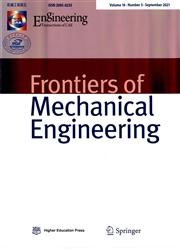Editorial: Quantum computing applications in computational engineering
IF 4
2区 工程技术
Q1 ENGINEERING, MECHANICAL
引用次数: 0
Abstract
Quantum computing research is a very active and diverse area of research, including work on creating quantum processing hardware in addition to investigations of applications with the potential for significant speed-up over simulations on classical (non-quantum) computers. The focus of this Research Topic is on applications in computational science and engineering. For these applications, the development of effective quantum algorithms with a significant speed-up over classical algorithms running on classical computers, has shown limited overall progress and is still in its infancy. However, this area of research has seen significant growth and progress in recent years, as illustrated by the three articles in this Research Topic. The three articles in this Research Topic present advances in the development of quantum algorithms for applications in computational engineering, in particular computational fluid dynamics and structural mechanics. Two of the articles focus on original research in the area of computational fluid dynamics, while the third article provides a detailed review of existing work and prospects for quantum computing for partial differential equations in structural mechanics. Focusing on the concept of quantum annealing, the article by Ray et al. explores the feasibility of using quantum annealers for the simulation of fluid flows. In the literature, this approach has not been widely investigated. In their article, Ray et al. consider the wellstudied flow problem comprising the fully-developed pressure-driven flow between two infinite flat plates so that a linear, quasi-one-dimensional problem emerges. They then describe a framework to convert this type of problem in terms of an optimization problem suitable for use on quantum annealers. The D-Wave annealer (D-Wave, 2022) used in this work returns multiple states that sample the energy landscape of the problem and therefore the authors explore different solution selection strategies to approximate the solution of the problem. The obtained solutions are analyzed both qualitatively and quantitatively, showing, for example, the sensitivity to the precision used in the fixed-point representation of the velocity data. In recent years, a major research focus in quantum computer applications to fluid dynamics has been lattice-based modeling, in particular approaches based on the Lattice Boltzmann method, e.g., Todorova and Steijl (2020); Budinski (2021); Budinski (2022). The article byMoawad et al. focuses on quantum circuit implementations of the one-dimensional OPEN ACCESS社论:量子计算在计算工程中的应用
量子计算研究是一个非常活跃和多样化的研究领域,包括创建量子处理硬件的工作,以及研究在经典(非量子)计算机上模拟具有显着加速潜力的应用程序。本课题的研究重点是在计算科学和工程中的应用。对于这些应用,有效量子算法的发展比在经典计算机上运行的经典算法有显著的加速,但总体进展有限,仍处于起步阶段。然而,这一研究领域近年来取得了显著的增长和进步,正如本研究主题中的三篇文章所示。本研究主题的三篇文章介绍了量子算法在计算工程中应用的进展,特别是计算流体力学和结构力学。其中两篇文章侧重于计算流体动力学领域的原创研究,而第三篇文章则详细回顾了结构力学中偏微分方程的量子计算的现有工作和前景。Ray等人的文章从量子退火的概念出发,探讨了利用量子退火器模拟流体流动的可行性。在文献中,这种方法还没有得到广泛的研究。在他们的文章中,Ray等人考虑了充分研究的流动问题,包括两个无限平板之间充分发展的压力驱动流动,因此出现了线性的准一维问题。然后,他们描述了一个框架,将这类问题转换为适合用于量子退火炉的优化问题。在这项工作中使用的D-Wave退火器(D-Wave, 2022)返回了多个状态,这些状态对问题的能量景观进行了采样,因此作者探索了不同的解决方案选择策略来近似解决问题。对得到的解进行了定性和定量分析,例如,对速度数据的定点表示所使用的精度的敏感性。近年来,量子计算机在流体动力学中的应用的一个主要研究重点是基于晶格的建模,特别是基于晶格玻尔兹曼方法的方法,例如Todorova和Steijl (2020);Budinski (2021);Budinski(2022)。moawad等人的文章主要关注一维OPEN ACCESS的量子电路实现
本文章由计算机程序翻译,如有差异,请以英文原文为准。
求助全文
约1分钟内获得全文
求助全文
来源期刊

Frontiers of Mechanical Engineering
Engineering-Mechanical Engineering
CiteScore
7.20
自引率
6.70%
发文量
731
期刊介绍:
Frontiers of Mechanical Engineering is an international peer-reviewed academic journal sponsored by the Ministry of Education of China. The journal seeks to provide a forum for a broad blend of high-quality academic papers in order to promote rapid communication and exchange between researchers, scientists, and engineers in the field of mechanical engineering. The journal publishes original research articles, review articles and feature articles.
 求助内容:
求助内容: 应助结果提醒方式:
应助结果提醒方式:


